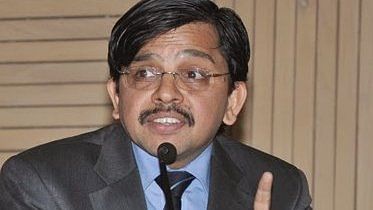The Delhi HC judge, known for ‘bold pronouncements’, is at the heart of the latest row in the judiciary as proposals to transfer him have been stalled.
New Delhi: The latest rumblings in the judiciary is over the stalled transfer of Delhi High Court judge, Justice S. Muralidhar. It is learnt that the move to transfer Justice Muralidhar has been put on hold after several Supreme Court judges voiced their objection.
As reported by The Indian Express, the Supreme Court Collegium first discussed a proposal to transfer him in December and then again in January. On both occasions, the proposal was shot down after judges in the Collegium — led by Chief Justice of India Ranjan Gogoi — advised against it.
In his 13 years in the bar, Justice Muralidhar has an enviable record and a reputation of championing the cause of the disadvantaged. His several judgments bear out this view.
Apart from convicting members of the Uttar Pradesh Provincial Armed Constabulary (PAC) in the Hashimpura massacre case and Congress leader Sajjan Kumar in the 1984 anti-Sikh riots case, Justice Muralidhar was part of the Delhi High Court bench that first legalised LGBTQ sex in the 2009 Naz Foundation case.
He was also part of the full bench in 2010 that ruled in favour of a petitioner who had filed an RTI seeking information from the Supreme Court registry on how many judges had declared their assets.
Justice Muralidhar is among the few judges who have done away with the convention of judges being addressed as “My Lord” or “Your Lordship”. In fact, the high court registry makes a special mention of this in his cause-list.
Judge Muralidhar the advocate
S. Muralidhar began his law practice in Chennai, Tamil Nadu, in 1984. Three years later, he shifted base to the national capital where he was an advocate at the Delhi High Court and the Supreme Court. As a lawyer, Muralidhar was active with cases from the Supreme Court Legal Services Committee and later even became a member for two terms.
At the Delhi High Court, Muralidhar took up the cause of the victims of the Bhopal Gas tragedy and those who were displaced due to the construction of dams on the Narmada river. Muralidhar has also represented the National Human Rights Commission, the Election Commission and had been appointed amicus curiae by the Supreme Court in several important PILs.
Also read: SC wanted to transfer Delhi HC judge, but put it on hold after dissent in collegium
The judge with bold pronouncements
Justice Muralidhar was appointed as a judge of the Delhi High Court in 2006. He is slated to retire in 2023 when he will reach 62 years of age.
According to the high court website, Justice Muralidhar has delivered — or been part of benches that have delivered — over 3,100 verdicts. Many of his verdicts have been hailed as victories for personal liberty and justice.
In the judgment indicting Sajjan Kumar, Justice Muralidhar noted that there was “a familiar pattern of mass killings in Mumbai in 1993, in Gujarat in 2002, in Kandhamal, Odisha, in 2008, in Muzaffarnagar in U.P. in 2013” where minorities were being targeted and the attacks were being “spearheaded by the dominant political actors being facilitated by the law enforcement agencies”.
“The criminals responsible for the mass crimes have enjoyed political patronage and managed to evade prosecution and punishment,” he further wrote.
“Bringing such criminals to justice poses a serious challenge to our legal system… Neither ‘crimes against humanity’ nor ‘genocide’ is part of our domestic law of crime. This loophole needs to be addressed urgently.”
The Bhima Koregaon case
In 2018, the judge also set aside the transit remand issued against activist Gautam Navlakha who was linked to the violence in Bhima Koregaon. Questioning the legality of Navlakha’s arrest, the high court noted that every minute a person remains in custody was a matter of concern.
Pointing out that the Maharashtra Police had failed to produce translated documents, the bench headed by Justice Muralidhar said that this resulted in Navlakha not even knowing why he was being arrested.
During the year, the judge also headed the bench that junked a plea filed by BJP leader Subramanian Swamy seeking an independent probe in the Sunanda Pushkar case. “The court is left with a distinct impression…that this is perhaps a textbook example of a ‘political interest litigation’ dressed up as a PIL,” the bench had then said.
The judge has been targeted for his verdicts. Last October, RSS ideologue S. Gurumurthy, now an independent director of the Reserve Bank of India (RBI), attacked the judge for his order on Navlakha.
“If only contempt weapon is not there in some court’s hands their judgements can be torn to pieces as judgements rendered because the parties benefiting by the judgements are wife’s ideological associates or the judge’s own. Sorry state of the judiciary,” Gurumurthy had tweeted. The RSS ideologue was referring to Usha Ramanathan, Muralidhar’s wife, who is a law expert and a champion of privacy rights.
In reponse to Gurumurthy’s tweet, the high court bench comprising Justices Hima Kohli and Yogesh Khanna had issued a notice of contempt against him. The high court had sought an unequivocal apology from Gurumurthy. Since that wasn’t forthcoming, however, the matter is currently going on in-chambers before Justices Siddharth Mridul and Sangita Dhingra Sehgal.
The Indian Express reports that the first move to transfer Justice Muralidhar came shortly after this.
Also read: Bar Council asks Modi for Rs 50,000-crore allocation in Budget for lawyers’ welfare
